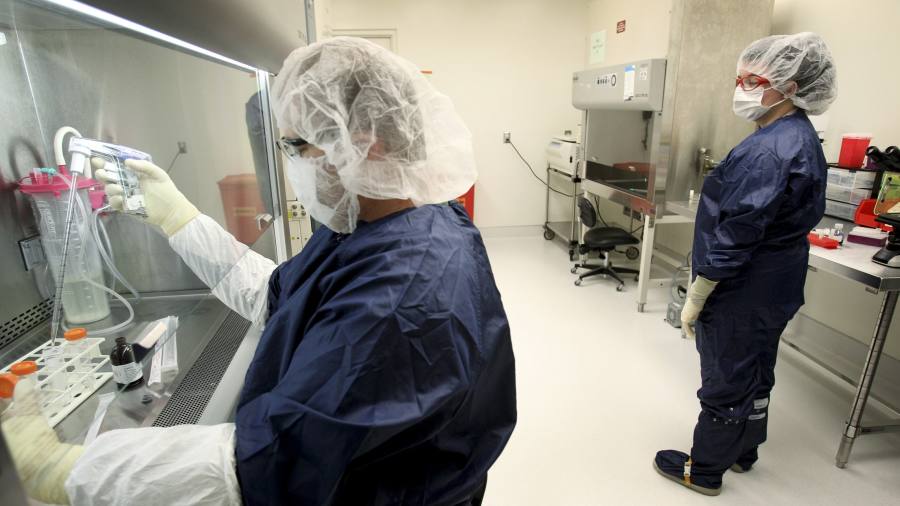
A cancer-focused biotechnology company has sued eight of the US’s largest market-making traders including Citadel Securities, Susquehanna and Virtu, alleging that they deliberately drove down its share price by placing sell orders they had no intention of executing.
The complaint, filed by Northwest Biotherapeutics in a federal court in New York on Thursday, claimed that the traders “deliberately engaged in repeated spoofing that interfered with the natural forces of supply and demand” by placing tens of millions of fake orders between December 2017 and August of this year.
The trading companies would then cancel those orders and buy Northwest’s shares at an artificially lower price, the complaint alleged.
Lawyers for the clinical-stage biotechnology firm claimed a “particularly egregious example” of this activity took place in May, after the publication of what they maintain were positive trial data for Northwest’s DCVax-L brain cancer drug. The study’s design had been questioned by scientists.
The news “should have caused NWBO’s share price to increase, absent manipulation in the market”, they wrote, referring to the company’s stock symbol. Instead it dropped from $1.73 to a low of $0.3862.
“This staggering decline of 78 per cent in the price on a day with extremely positive news about the company was caused by defendants’ relentless and brazen manipulation of the market for NWBO shares,” lawyers at Cohen Milstein Sellers & Toll added.
However, the presentation of the DCVax clinical data was not well received by all commentators. “Overall, patients treated with DCVax had a 10 per cent higher risk of tumor progression compared to placebo — an outcome that is the antithesis of what’s required from any effective cancer treatment,” industry specialist publication STAT wrote at the time.
In March, the company had warned in regulatory submissions that “because of recurring operating losses and operating cash flow deficits, there is substantial doubt about the company’s ability to continue as a going concern within one year from the date of this filing”.
Maryland-based Northwest Biotherapeutics has a market capitalisation of about $860mn and is traded on the US over-the-counter market. Its shares currently change hands at about $0.83.
In 2019 the company settled an action by the Securities and Exchange Commission after the regulator found it failed to maintain internal controls over its financial reporting for 12 years.
Aside from Citadel Securities, Susquehanna and Virtu, the lawsuit named Canaccord Genuity, GTS, Instinet, Lime Trading and Susquehanna subsidiary G1 as defendants.
Citadel Securities, the group founded by Ken Griffin, objected to Northwest’s allegations.
“This frivolous lawsuit appears to be nothing more than an attempt by Northwest Biotherapeutics to divert attention away from its long history of governance and management failures, SEC charges for financial reporting lapses, and lawsuits from its own shareholders,” Citadel Securities said in a statement.
“We intend to pursue any and all legal action against Northwest Biotherapeutics for making these false and baseless allegations, which only undermine the integrity of our capital markets,” the trading company added.
Nomura, which owns Instinet, declined to comment, while the other trading firms did not immediately respond to requests for comment.
In its complaint, Northwest said it sold 49mn of its shares at artificially deflated prices. It added that there was “an extremely low statistical likelihood” that the price variations in each of the alleged spoofing incidents had occurred due to normal market moves.
“It’s already underhanded to engage in market manipulation, but to do so at the expense of cancer patients, some of whom have no other treatments to place their hopes on, is unconscionable,” said Laura Posner, a partner at Cohen Milstein.